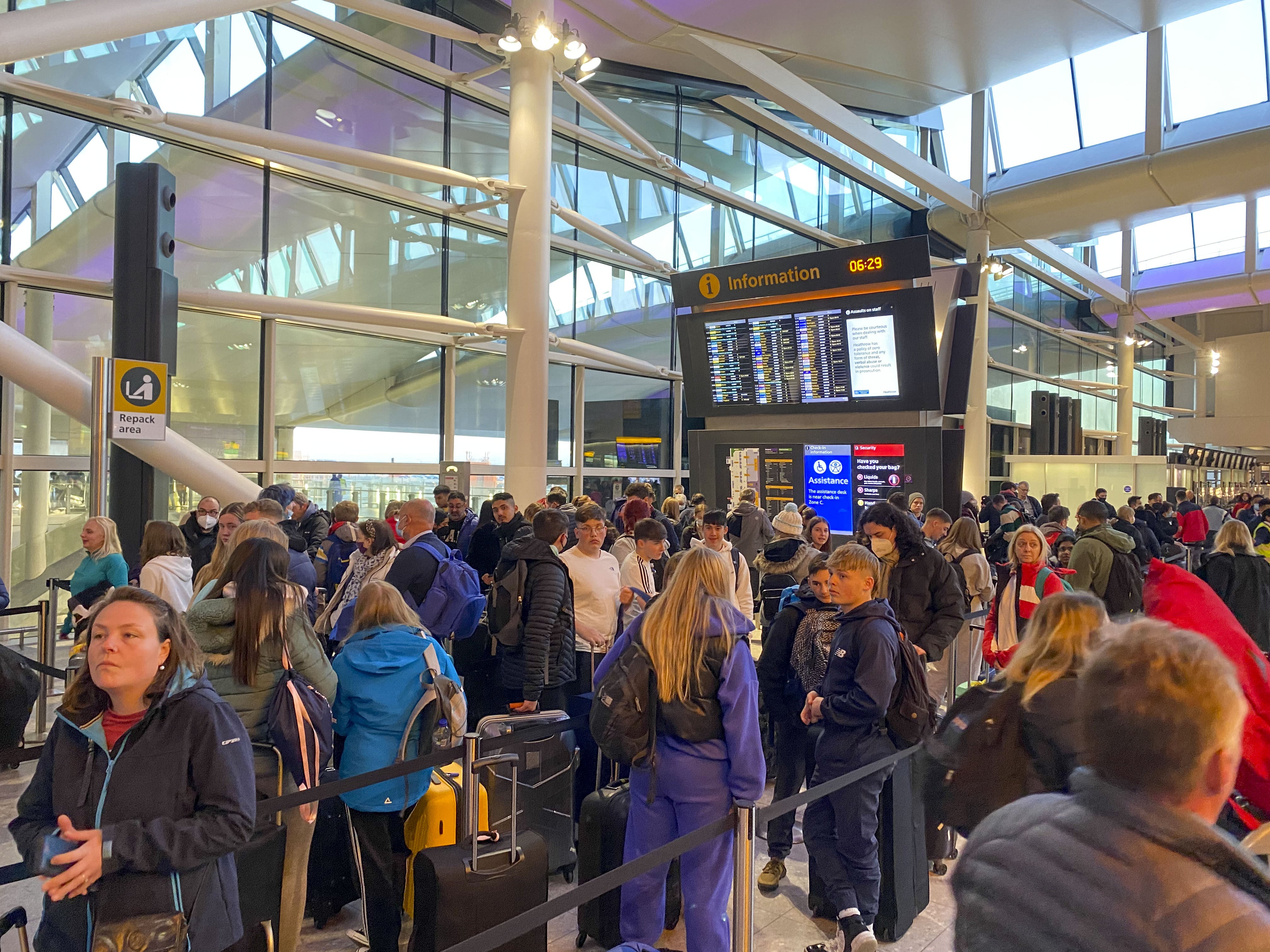Passengers to face ‘some’ disruption due to cancelled flights – industry boss
British Airways announced it is to cancel hundreds more summer flights as previous schedule cuts aimed at easing disruption proved insufficient.

Your support helps us to tell the story
From reproductive rights to climate change to Big Tech, The Independent is on the ground when the story is developing. Whether it's investigating the financials of Elon Musk's pro-Trump PAC or producing our latest documentary, 'The A Word', which shines a light on the American women fighting for reproductive rights, we know how important it is to parse out the facts from the messaging.
At such a critical moment in US history, we need reporters on the ground. Your donation allows us to keep sending journalists to speak to both sides of the story.
The Independent is trusted by Americans across the entire political spectrum. And unlike many other quality news outlets, we choose not to lock Americans out of our reporting and analysis with paywalls. We believe quality journalism should be available to everyone, paid for by those who can afford it.
Your support makes all the difference.Passengers are set to face some travel problems as they try to head off for their summer getaways despite further flight cancellations aimed at helping ease disruption, according to a former British Airways chief executive.
Willie Walsh, who is now the director general of the International Air Transport Association, also believes surging oil prices will mean “flying will be more expensive for consumers, without doubt.”
Earlier this week British Airways announced it is to cancel hundreds more summer flights as previous schedule cuts aimed at easing disruption proved insufficient.
The airline said in a statement that it had “regrettably” become necessary to further reduce its operations.
Tens of thousands of passengers will be affected by the move to cancel flights at Heathrow and Gatwick.
Mr Walsh told Sunday Morning With Sophie Raworth: “I think that it is right that these cancellations are made early because that will allow airlines and their customers to adapt to the revised schedules.
“I actually expect people to be able to get away. I think there will be some disruption but I don’t think it will be on the scale we have seen to date.
“I believe that there are solutions that have been put in place.”
The aviation industry is suffering major disruption as a surge in demand for travel coincides with staff shortages across roles such as airline crew, ground handlers, airport security staff and air traffic controllers.
Thousands of flights have been cancelled and many passengers have been forced to wait for several hours in long queues at airports.
In May, British Airways announced that it would cancel 10% of flights between April and October in an attempt to avoid having to axe flights on the day of departure.
But the latest cancellations take this figure to around 11%.
Mr Walsh told the programme he was “surprised” that passengers do not yet know which flights are being scrapped.
He told the programme: “Certainly, I believe they should have been announced as soon as they made clear they would be cancelled.”
He explained that a lot of these flights will currently have very low bookings, with possibly less that 20 per cent of the seats on some having been confirmed.
He does not believe airlines will have difficulty in accommodating affected passengers.
Flights are getting more expensive because of the high price of oil and it has been clear to everybody that will be reflected in higher ticket prices
Efforts are being made so that passengers will not be hit financially because there are fewer flights but they will see higher ticket prices, according to Mr Walsh.
He told the programme: “Flights are getting more expensive because of the high price of oil and it has been clear to everybody that will be reflected in higher ticket prices.”
He added: “Flying will be more expensive for consumers, without doubt.
“Oil is the single biggest element of an airlines’ cost base. It is inevitable that ultimately the high oil prices will be passed through to consumers.”
BA’s summer flights announcement comes after the Government introduced a slot amnesty, which enables airlines temporarily to hand back without punishment any take-off and landing slots they do not have the resources to use.
Under normal rules carriers lose slots if they do not use them.